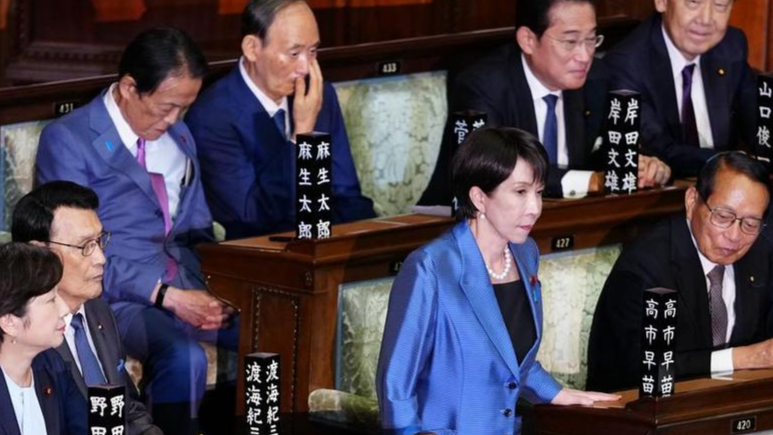
China on Tuesday challenged Japan's repeated assertions that it has maintained a "consistent position" on the Taiwan question, saying that Japan's insistence on repeating the phrase avoids addressing the core issue.
"In fact, Japan is deliberately evading China's request to retract its erroneous remarks and is attempting to muddle through," Foreign Ministry spokeswoman Mao Ning said at a regular news briefing.
The remarks came after Japanese media reported that the Japanese government issued a written response in a Cabinet meeting on Tuesday stating that recent remarks on the Taiwan question by the Japanese Prime Minister Sanae Takaichi did not signify any change in the government's consistent position.
ALSO READ: Japanese PM’s Taiwan remarks a dangerous echo of past militarism
"Recently, Japanese officials have repeatedly referred to Japan's 'consistent position' on the Taiwan question," Mao said. "We have made it clear to the Japanese side: what exactly do they mean by this so-called 'consistent position'? Can Japan articulate this 'consistent position' in its entirety to the public?"
Mao noted that this inevitably raises doubts within the international community about whether Japan truly has the sincerity and willingness to engage in self-reflection and correct its mistakes.
Mao also sharply rejected arguments circulating in Japan that the People's Republic of China is not qualified to speak on the Taiwan question because "Japan's 1945 surrender was accepted by the Republic of China".
"Those who made such statements are either ignorant of history or deliberately distorting it and disregarding international law," Mao said.
ALSO READ: Takaichi urged to retract wrongful remarks for strategic ties with China
She noted that after Japan signed the Japanese Instrument of Surrender in 1945, it pledged to carry out the provisions of the Potsdam Declaration in good faith, which required the unconditional return of Taiwan to China.
"China resumed the exercise of sovereignty over Taiwan and had recovered Taiwan de jure and de facto," she said.
In 1949, the People's Republic of China was founded, becoming the successor to the Republic of China. This constituted a change of government, not a change in China's status as a subject of international law, Mao said.
"China's sovereignty and inherent territory did not change," Mao said. "As a natural result, the government of the PRC fully enjoys and exercises China's sovereignty, including sovereignty over Taiwan."
READ MORE: Hundreds of Japanese demand Takaichi retract Taiwan remarks
Mao added that the 1972 Sino-Japanese Joint Statement explicitly states that the Japanese government recognizes the government of the People's Republic of China as the sole legal government of China.
"There is only one China in the world, and Taiwan is an inalienable part of the Chinese territory," Mao said. "This is an ironclad fact that cannot be distorted or falsified."


